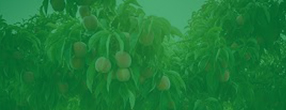CSC博士招生-英国邓迪大学Jorunn Bos
来源:昆虫小学生 时间:2024-12-10点击:88次
PhD opportunity
Molecular interplay in plant-aphid-virus interactions
Funding availability
Funded
Application deadline
31 January 2025
School
School of Life Sciences
Principal Supervisor
Dr Jorunn Bos
View all supervisors
Aphid-transmitted plant viruses pose a major threat to potato crop production. Among the non-persistent viruses, potyviruses, such as PVY and PVA, cause significant economic damage. With most UK grown potato cultivars being susceptible to potyviruses like PVY, and the main insecticides controlling aphid vectors removed from use, there is a need to develop new and sustainable disease management and control strategies. This would require an in depth understanding of molecular interplay between these viruses, their vectors and host plants.
One of the major vectors of PVY and other non-persistent viruses is the green peach aphid Myzus persicae. Aphids are phloem feeding insects, that use specialized mouthparts, called stylets, to probe the leaf tissue and feed on plant sap. Virus particles can be acquired by the insect while probing/feeding on infected plant tissues, carried on the stylets, and be transmitted to healthy plants. The molecular interactions the take place between virus particles and their vector remain poorly understood. In this project, we aim to gain novel insights into the molecular interplay between non-persistent viruses (in this case PVY), the aphid species M. persicae, and solanaceous host plants. The specific question this project aims to address are:
What are the molecular processes involved in effective virus transmission by aphids?
Do aphid salivary proteins with virulence activity affect plant-aphid-virus interactions (eg transmission efficiency)?
The student will use protein-protein interaction tools, including yeast-two-hybrid assays and proteomics to identify aphid and virus proteins involved in the transmission process, and utilise confocal microscopy to assess how aphid infestation affects virus (protein) localisation.
In addition, the project will build on previous data generated in the Bos Lab showing that secreted aphid saliva proteins, called effectors, promote host susceptibility. Specifically, the student will assess how the virulence activity of these effectors impacts virus transmission on solanaceous host plants. The student will develop a range of tools and assays in Nicotiana benthamiana, based on gene editing and ectopic effector expression, to test whether and to what extent aphid effectors, and the plant processes these proteins modulate, affect the aphid’s ability to transmit virus.
The student will be hosted in the groups of Dr. Jorunn Bos (Division of Plant Sciences, University of Dundee/The James Hutton Institute and Dr. Alison Roberts (The James Hutton Institute).
Our research community thrives on the diversity of students and staff which helps to make the University of Dundee a UK university of choice for postgraduate research. We welcome applications from all talented individuals and are committed to widening access to those who have the ability and potential to benefit from higher education.
How to apply
If you'd like to discuss this project further, please contact the Principal Supervisor named below.
You must be a Chinese National to apply to this programme.
To begin your application, please click 'https://www.dundee.ac.uk/phds/opportunities/molecular-interplay-plant-aphid-virus-interactions'.











